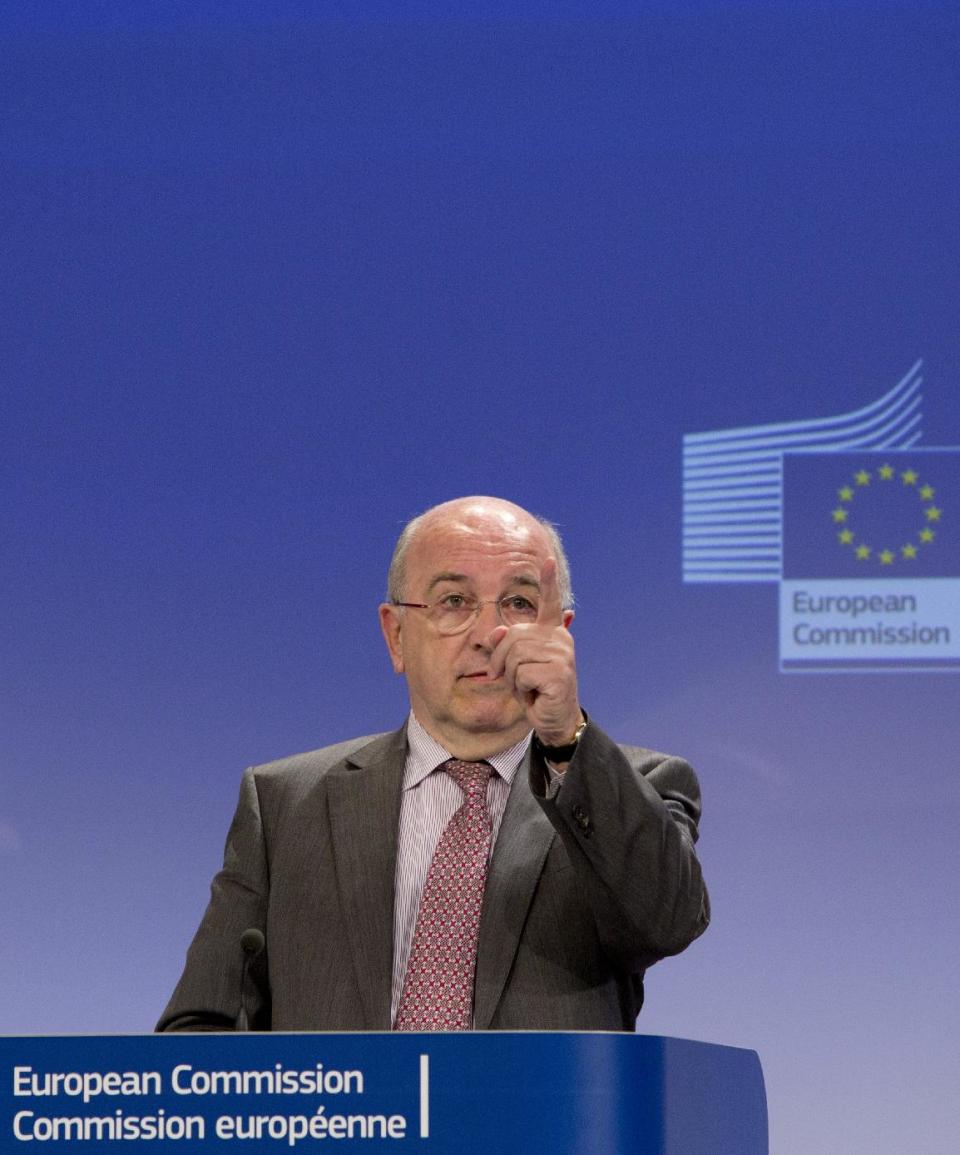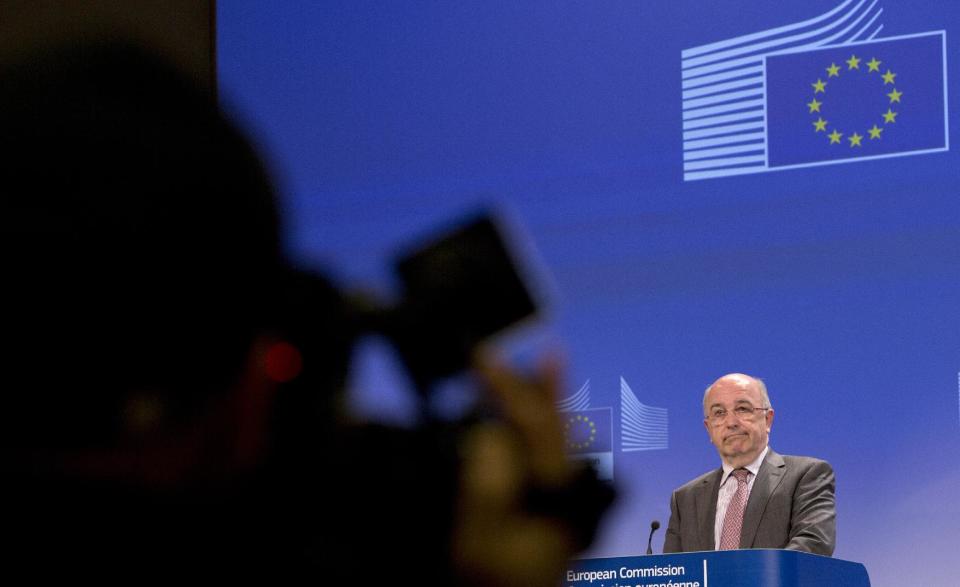EU antitrust body probes US film studio contracts
BRUSSELS (AP) — The European Union's antitrust watchdog is investigating whether major U.S. film studios' practice of selling rights to European pay TV broadcasters for only one country at a time is hurting competition.
The studios typically demand clauses in their contracts with European pay TV broadcasters limiting film rights to only their home country, rather than across the EU's 28 states. The European Commission, the EU's executive arm, said Monday it is investigating the legality of such clauses.
"Such provisions might constitute an infringement of EU antitrust rules," said Commissioner Joaquin Almunia, the bloc's antitrust chief. "More and more European citizens watch films, use pay TV services broadcast by satellite and increasingly available through online streaming," he told reporters in Brussels.
The probe covers Time Warner Inc.'s Warner Bros. studio, Comcast Corp.'s NBCUniversal, Viacom Inc.'s Paramount Pictures and Sony Pictures.
Another studio targeted, Twentieth Century Fox, is part of 21st Century Fox Inc., an entertainment giant controlled by Rupert Murdoch that also holds large stakes in European pay TV broadcasters at the other end of the EU investigation, such as Britain's BSkyB, Sky Italy and Sky Germany.
Contract clauses granting "absolute territorial protection" might be forcing pay TV operators such as France's Canal Plus, Spain's DTS or the Sky channels to refuse subscribers from other EU nations, according to the Commission.
The question is, for example, whether a subscriber to a German pay TV channel should be able to watch his content when using his laptop to stream it online while on vacation in another EU nation, he said.
"Or if you live in Belgium and you want to subscribe to a Spanish pay TV service, (you) may not be able to subscribe at all if there's absolute territorial exclusivity," Almunia said.
Almunia specified, however, that the investigation doesn't question all forms of territorial limitations and doesn't aim at introducing flat-out European contracts instead of national ones.
The Commission has no legal deadline to complete its antitrust inquiries. If it finds violations of competition rules, it can hand firms fines worth a percentage of the annual sales of the relevant products, capped at a maximum of 10 percent of a firm's overall annual revenues.
The bloc's top court, the EU Court of Justice, in 2011 found in a case involving territorial licensing restrictions for Premier League football matches that they eliminate competition between broadcasters and partition the market according to national borders, the Commission said.
Regarding football rights "these exclusivity conditions are being eliminated or have been eliminated" following the court ruling, Almunia said. On film rights, however, such clauses of territorial exclusivity still exist, he added.
"We will carefully examine the principle set out by the court," Almunia said.
___
Follow Juergen Baetz on Twitter at http://www.twitter.com/jbaetz



